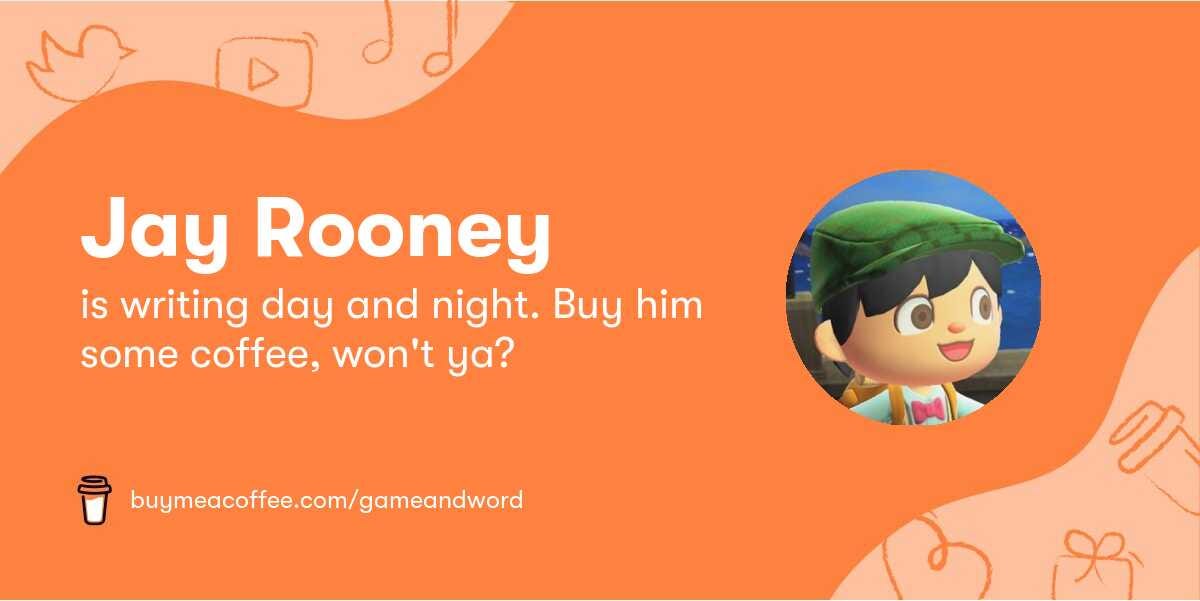Issue 4.2: The Platform's Dead, Long Live The Games
Google Stadia's Demise and Video Game Preservation in the Streaming Era
Game & Word Volume 4, Issue 2: Sunday, October 9, 2022

Publisher: Jay Rooney
Author, Graphics, Research: Jay Rooney
Logo: Jarnest Media
Founding Members:
Le_Takas, from Luzern, Switzerland (Member since April 14, 2022)
Ela F., from San Diego, CA (Member since April 24, 2022)
Alexi F., from Chicago, IL (Member since May 13, 2022)
Elvira O., from Mexico City, Mexico (Member since May 18, 2022)
Special Thanks:
YOU, for reading this issue.
Table of Contents
Feature: “The Game Is Dead: Long Live the Game” (~20 minute read)
Game & Word-of-Mouth
Footnotes
Previous Issues
NOTE: Game & Word is a reader-supported publication. The two most recent issues are available to all, free of charge, until new issues are published (podcasts and videos will always remain free).
Older issues are archived and only accessible to paid subscribers. To access articles from the Game & Word archive, support my work, and keep this newsletter free and available to all, upgrade your subscription today:
Volume 1 (The Name of the Game): Issue 1 ● Issue 2 ● Issue 3 ● Issue 4
Volume 2 (Yo Ho Ho, It’s a Gamer’s Life for Me): Issue 1 ● Issue 2 ● Issue 3 ● Bonus 1 ● Issue 4 ● Issue 5 ● Issue 6 ● Issue 7 ● Bonus 2 ● Issue 8 ● Bonus 3
Volume 3 (Game Over Matter): Intro ● Issue 1 ● Issue 2 ● Issue 3 ● Podcast 1 ● Issue 4 ● Video Podcast 1 ● Bonus 1 ● Issue 5 ● Podcast 2 ● Issue 6 ● Issue 7 ● Issue 8 ● Issue 9 ● Podcast 3 ● Bonus 2
Not ready to commit to a paid subscription? You can also help offset my caffeine costs by chipping in for the price of a cup of joe:
Feature: The Game Is Dead, Long Live the Game
⚠️⚠️⚠️ CONTENT WARNING ⚠️⚠️⚠️
This article contains discussions of <TOPIC> and <TOPIC>. If these topics upset you, please proceed with caution. Section(s) discussing these topics will be clearly labeled under the subhead.
Google is one of the few companies whose product failures generate more buzz than their product launches… on said product’s launch day. In fact, Google launching products to great fanfare, only to unceremoniously and anticlimactically kill them off just a few years later has become a meme at this point.
So when Google similarly killed its once-similarly-hyped game streaming platform, Google Stadia, on September 29, 2022, folks weren’t exactly surprised. To outside observers, it was just another instance of “Google being Google” and losing its innovative edge, one failed product at a time.
One cheeky Twitter user, Jason Scott, even set up a timer to commemorate Stadia’s launch… by counting down the days until Google would inevitably put the budding gaming platform to pasture (turns out Jason was overly optimistic, with Stadia due to shut down in January 2023, a full year before he predicted):


And even within the gaming community, few took Google seriously when the service launched to a chorus of grandiose promises (courtesy of Stadia head honcho Phil Harrison) of revolutionizing the industry through cloud-based gaming. Granted, the technology undergirding Stadia was (and is) mostly sound, and actually quite impressive. But literally from the very start (if not before then), Google made a constant stream of questionable and downright baffling business decisions, one after another, kneecapping any chance of its flashy gaming experiment ever succeeding.
All of that’s already been chronicled, in excruciating detail, by the more mainstream tech and gaming press. So I won’t rehash all the reasons why Stadia failed. After all, as I’ve made quite clear on many occasions, Game & Word isn’t a news site, and doesn’t cover topics based on their timeliness.
But this particular topic just so happens to be highly relevant to our current theme (time) and this issue’s topic (preservation). So, I’ll cover it.
Specifically, Stadia’s failure highlights some thorny issues that game preservationists have long sounded the alarms on. Chief among them: once a cloud gaming platform goes offline, it takes all of its games offline with it—possibly forever.
This has tremendous implications for preservation, consumer ownership of media, and the future of gaming writ large—and reckoning with them will only increase in urgency the more the industry embraces platform-agnostic, cloud-based gaming.






